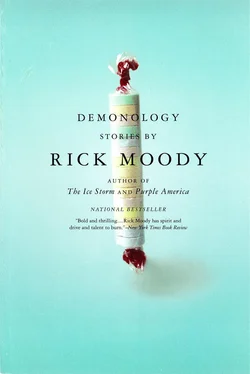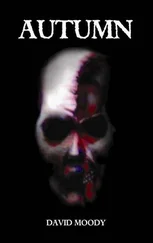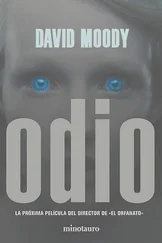$350
24. Wittgenstein, Ludwig. Coded Remarks: 1919–1920. Not a manuscript so much as a series of remarks written in a simple code that the author used occasionally in all his many diaries (a=z, b=y, et cetera). Sometimes this cryptographically rendered manuscript took up matters of philosophy, sometimes not. The significance of the period described here, however, is that it concerns Wittgenstein’s lost decade, during which he mainly taught elementary school in Austria. (Later, he was driven from this his homeland by the Anschluss. ) The coded remarks contained in these pages, however, most often concern themselves with Wittgenstein’s fantasies about working class men, the angelic and brutal boys, who inhabited a park nearby, creeping from copse to meadow on the prowl; or, at least, remarks on these boys, some quite lengthy, are interlarded with exacting and unyielding truths of Wittgenstein’s daily life after the First World War, Ate Dover sole. Stupefied by the continuing manifestations of sensuality in myself. That the lion should speak is by no means guaranteed, though possessed of a tongue. Commentators are at loggerheads, as commentators always are, as to whether the boys in the park actually existed for Wittgenstein in the carnal sense, whether he possessed them, knew them, saw them frequently, or whether, having occasionally observed them, he merely imagined a sinful compulsion, in his view, thus engaging in what was hardest to admit to himself, the need for a physical articulation of a love he felt strongly, If my body should sing the perfect round tones of an oratorio across a forbidden boundary of shrubs, is it not inevitable that its cry should be unmistakable? Of course, there are parallels here, and not only in that Anna Feldman was also of Jewish ancestry, somewhat assimilated, married goyim, thus diluting whether intentionally or by happenstance her bloodline. I’ve already intimated, moreover, the possibility that your bibliographer has exaggerated the tone and frequency of contacts with Anna, because, as with Wittgenstein, his experiences with the sweet mayhem of intrapsychic libidinous exchange are limited to a few meaningless couplings, after which he found himself suddenly alone. In conclusion, there is a mystical level to this collection of excerpts torn from the famous lost decade of Ludwig Wittgenstein, as in the inscription on the title page, in his elegant but somewhat florid cursive. Am I correct in how I decipher the words? Perhaps it says To any friend who would labor here for my full and complete confession I bequeath herewith the force of my affliction. When I showed it to my friend Don, the U.P.S. delivery man who comes to visit occasionally, his interpretation was as follows: To any fiend who lives here in complete decomposition of beneath hereafter the fast forward of my afterlife. We argued strenuously about it. I told Don that his high school education wasn’t up to the task of handwriting analysis. Then I signed for the packages he’d brought. The final word on interpretation I leave for myself, unless some institution is willing to pay the absurd price I suggest below. Wittgenstein’s inscription does not say To any friend, nor does it say To any fiend. Actually, as you should have guessed, it says, To Anna Feldman — who should labor here for my full and complete confession — Ibequeath the price of my affection. Of course, it’s anachronistic, this signature, unless Anna is a condition of the universe, a condition of all language, a condition of nighttime in Springfield, MA, unless Anna is merely an aspect of longing, the longing I have always felt, and therefore an inscription in all the books ever produced. How I miss her.
$ 100,000
They came in twos and threes, dressed in the fashionable Disney costumes of the year, Lion King, Pocahontas, Beauty and the Beast, or in the costumes of televised superheroes, protean, shape-shifting, thus arrayed, in twos and threes, complaining it was too hot with the mask on, Hey, I’m really hot! lugging those orange plastic buckets, bartering, haggling with one another, Gimme your Smarties, please? as their parents tarried behind, grownups following after, grownups bantering about the schools, or about movies, about local sports, about their marriages, about the difficulties of long marriages, kids sprinting up the next driveway, kids decked out as demons or superheroes or dinosaurs or as advertisements for our multinational entertainment-providers, beating back the restless souls of the dead, in search of sweets.
* * *
They came in bursts of fertility, my sister’s kids, when the bar drinking, or home-grown dope-smoking, or bed-hopping had lost its luster; they came with shrill cries and demands — little gavels, she said, instead of fists — Feed me! Change me! Pay attention to me! Now it was Halloween and the mothers in town, my sister among them, trailed after their kids, warned them away from items not fully wrapped, Just give me that, you don’t even like apples, laughing at the kids hobbling in their bulky costumes — my nephew dressed as a shark, dragging a mildewed gray tail behind him. But what kind of shark? A great white? A blue? A tiger shark? A hammerhead? A nurse shark?
She took pictures of costumed urchins, my sister, as she always took pictures, e.g., my nephew on his first birthday (six years prior), blackfaced with cake and ice cream, a dozen relatives attempting in turn to read to him — about a tugboat — from a brand-new rubberized book. Toot toot! His desperate, needy expression, in the photo, all out of phase with our excitement. The first nephew! The first grandchild! He was trying to get the cake in his mouth. Or: a later photo of my niece (his younger sister) attempting to push my nephew out of the shot — against a backdrop of autumn foliage; or a photo of my brother wearing my dad’s yellow double-knit paisley trousers (with a bit of flare in the cuffs), twenty-five years after the heyday of such stylings; or my father and stepmother on their powerboat, peaceful and happy, the riotous wake behind them; or my sister’s virtuosic photos of dogs —Mom’s irrepressible golden retriever chasing a tennis ball across an overgrown lawn, or my dad’s setter on the beach with a perspiring Löwenbräu leaning against his snout. Fifteen or twenty photo albums on the shelves in my sister’s living room, a whole range of leathers and faux-leathers, no particular order, and just as many more photos loose, floating around the basement, castoffs, and files of negatives in their plastic wrappers.
She drank the demon rum, and she taught me how to do it, too, when we were kids; she taught me how to drink. We stole drinks, or we got people to steal them for us; we got reprobates of age to venture into the pristine suburban liquor stores. Later, I drank bourbon. My brother drank beer. My father drank single malt scotches. My grandmother drank half-gallons and then fell ill. My grandfather drank the finest collectibles. My sisters ex-husband drank more reasonably priced facsimiles. My brother drank until a woman lured him out of my mother’s house. I drank until I was afraid to go outside. My uncle drank until the last year of his life. And I carried my sister in a blackout from a bar once — she was mumbling to herself, humming melodies, mostly unconscious. I took her arms; Peter Hunter took her legs. She slept the whole next day. On Halloween, my sister had a single gin and tonic before going out with the kids, before ambling around the condos of Kensington Court, circling from multifamily unit to multifamily unit, until my nephews shark tail was grass-stained from the freshly mown lawns of the common areas. Then she drove her children across town to her ex-husbands house, released them into his supervision, and there they walked along empty lots, beside a brook, under the stars.
Читать дальше












